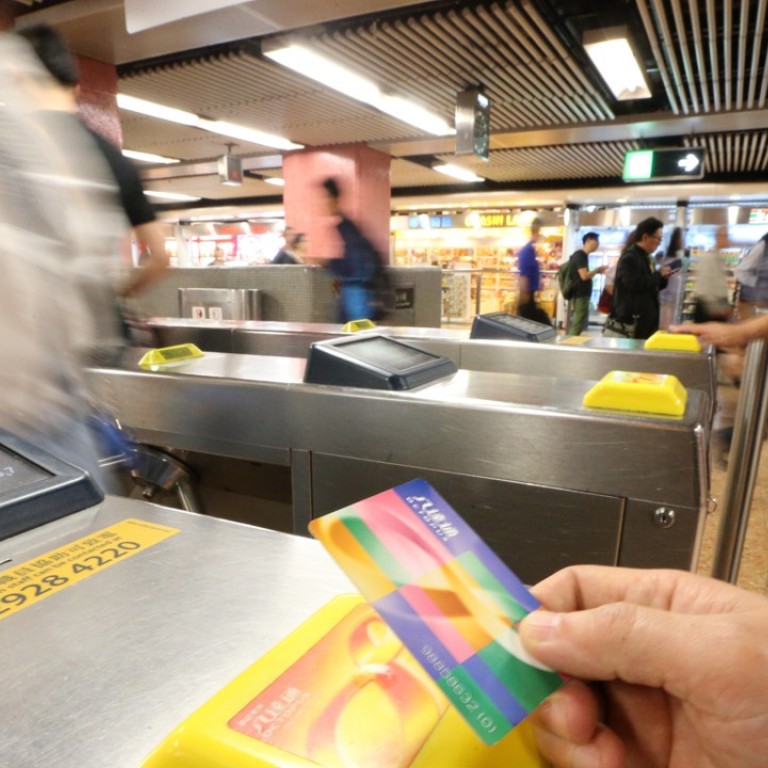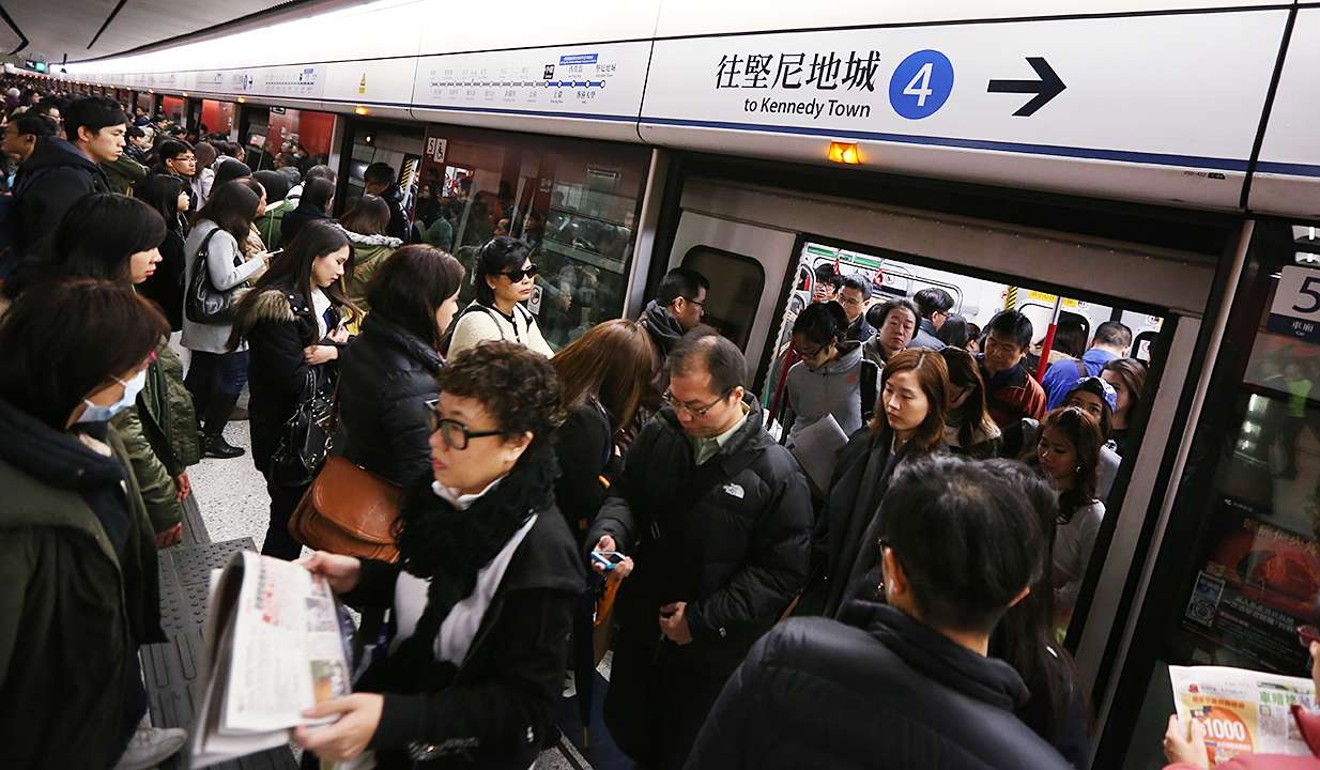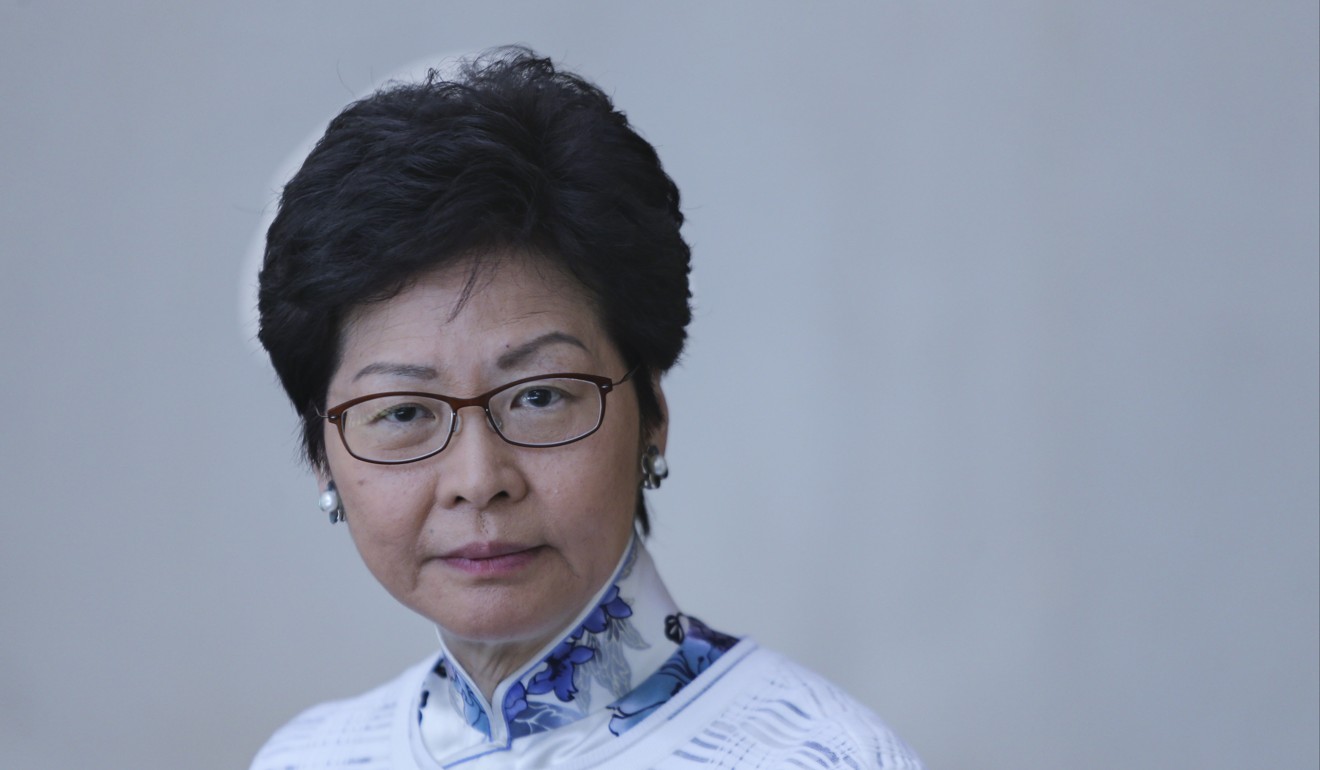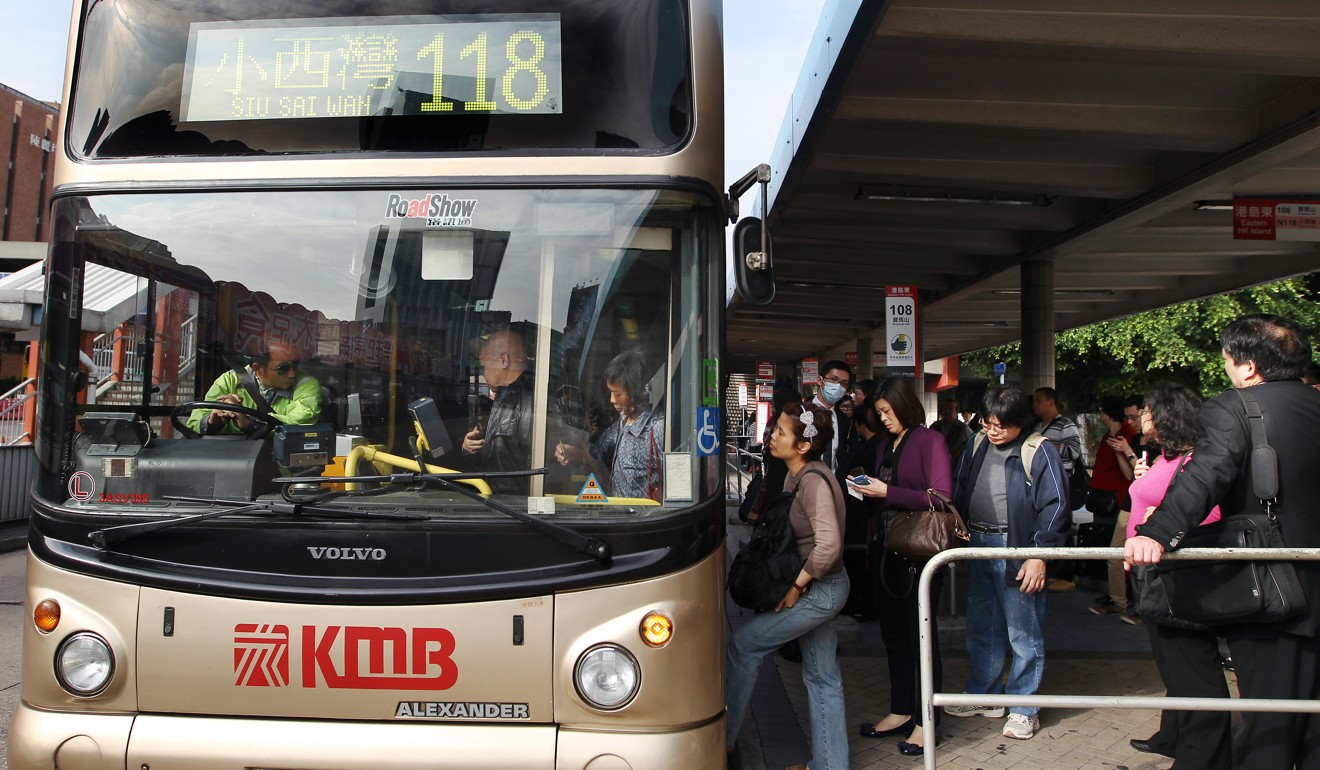
Public transport to get cheaper for hundreds of thousands of Hong Kong commuters
Concession scheme will use government dividends from MTR Corporation to lower the cost of the commute

In addition to MTR passengers, the scheme will cover travellers on buses, minibuses and other forms of public transport. And they can use their Octopus cards to get the fare discounts.
Details such as how to define “long distance” and how much of a discount should be offered are still being worked out.
MTR boss claims Carrie Lam backs Hong Kong public transport subsidies
One idea under consideration is to follow the present HK$2 transport fare concession scheme for the elderly and disabled, with long-distance commuters seeing automatic deductions if the fares are above a specific level.
Another option is to offer discounts after commuters spend a specific minimum amount on public transport per month.
At a campaign rally, Lam had said she expected “hundreds of thousands” of Hongkongers to benefit from the initiative and that it would demonstrate her “new fiscal philosophy”.
Many grassroots commuters may lose out if the government only subsidises long-distance passengers
She also gave an assurance that the plan would not harm the interests of MTR shareholders.
The railway firm’s chairman, Frederick Ma Si-hang, floated a similar idea when he took the helm last year. Some media reports had quoted projections that transport fares could drop by 20 to 30 per cent should the government use the MTR’s HK$4 billion in dividends to subsidise the plan.
But Professor Anthony Cheung Bing-leung, the transport minister at the time, voiced reservations, saying the dividend payouts from the firm were public money and should not be used to fund profit-making organisations.
At present, a single-trip fare for a bus from Tin Shui Wai in the New Territories to Kwun Tong in Kowloon is HK$18.4, while taking a bus from Sheung Shui in the New Territories to the Central business hub costs HK$24.3. MTR fares for the same journeys are HK$25 and HK$23, respectively.
The government holds about 75 per cent of MTR Corp shares, and receives about HK$4 billion in annual dividends.
Lawmaker Lau Kwok-fan, of the pro-establishment Democratic Alliance for the Betterment and Progress of Hong Kong, said the discount should not be means-tested.

“How the government is to define ‘long distance’ also matters a great deal. If it only applies to single long-distance trips, those taking multiple short or medium-distance trips to go to work might not benefit,” he said.
Non-affiliated legislator Michael Tien Puk-sun suggested setting a flat discount rate for all commuters.
“Many grass-roots commuters may lose out if the government only subsidises long-distance passengers,” he said. “As we all know, low-income workers can’t afford the time and money to take long trips to work.”

Tien said the scheme should include those using monthly passes.
On a radio show yesterday, Quentin Cheng Hin-kei, spokesman for concern group Public Transport Research Team, said he would support a plan that applied to all commuters and subsidised all forms of public transport.
But he questioned why any plan would still reinvest MTR profits back into the company.
Idea to use MTR dividends to subsidise fares is way off track
“Why can the government receive [such high] dividends from the MTR?” Cheng said. “It’s because the adjustable fare system has enabled the company to increase fares every year.”
Cheng suggested the system, linked partly to inflation in the city, had allowed the MTR Corp to increase fares by more than 20 per cent over the past decade.
The government should stop the railway operator from continually increasing fares, he added.


